What Went Wrong
A look at the downward spiral of the Aaronic priesthood
Contrary to what some people think, the concept of priesthood did not originate with Israel. In the patriarchal period, the male head of each household functioned as a mediating priest on behalf of his family. Job (Job 1:5), Noah (Gen. 8:20), Abraham, Isaac, and Jacob all erected altars and sacrificed animals to God.
After God delivered Israel from Egypt, He wanted to make the nation a kingdom of priests with direct access to Him (Ex. 19:4–6). But Israel sinned, breaking the covenant it had made with God at Mount Sinai (v. 5), and forfeiting the privilege of becoming a kingdom of priests.
That forfeiture birthed the Aaronic priesthood, a system that grew more corrupt with age until it even demanded the crucifixion of its own Messiah.
The Aaronic priesthood was established when God commanded Moses to take his brother, Aaron, and Aaron’s sons from the tribe of Levi and designate them as priests (28:1). Aaron, the high priest, was consecrated in an elaborate ceremony. His body was washed with water; blood atonement was offered on the altar for his sins; holy anointing oil was poured over him; and beautiful, official garments were draped on his body for service. In the decades to follow, the priesthood was passed down through Aaron’s family.
The word priest (Hebrew, kohayn) means “one who officiates.” Priests were not self-appointed but divinely called by God, deriving their authority directly from Him. They interceded for the Israelites by offering gifts and sacrifices for their own sins and those of Israel (Heb. 5:1–4). Priests could have no physical defects and were rejected for service if they failed to meet the qualifications recorded in Leviticus 21:17–21.
Priests also labored under certain restrictions. They were not permitted to defile themselves by participating in funerals, except those of family (Lev. 21:1–4). They could not shave their heads, beards, eyebrows, or make any cuts in their flesh (19:27–28). Nor were they to marry a profane (secular or unspiritual) woman, divorcée, prostitute, or widow. A priest had to marry a virgin (21:7, 14). Years later, Nehemiah condemned the priests for taking heathen wives (Neh. 13:25, 28). Other restrictions are listed in Leviticus 22.
THE TABERNACLE: SHADOWS OF THE MESSIAH
Read David Levy’s in-depth study of ancient Israel’s place of worship in The Tabernacle: Shadows of the Messiah.
The priests’ sacred responsibility was to represent the Israelites before God, and God before the Israelites by declaring God’s will to the people, teaching the Mosaic Law, caring for the Tabernacle and Temple, and offering sacrifices in worship to God (Dt. 33:8–10).
Over time, however, the priesthood grew corrupt, and priests often abused their calling and position. For example, Hophni and Phinehas, the two sons of the high priest Eli during the days of Samuel, forcibly took the peoples’ offerings and slept with women at the door of the Tabernacle. As punishment, God severed Eli’s house from the priesthood of Israel (1 Sam. 2:17, 22, 31–36).
The prophet Malachi detailed the priesthood’s corruption (Mal. 1:6—2:9).
The priests defamed God’s sacred name by showing contempt for it and not giving Him honor or glory. Furthermore, they seemed unaware of their corruption and calumny, having the audacity to ask, “In what way have we despised Your name?” (1:6).
The priests offered defective sacrifices in the Temple (vv. 7–8). Malachi sarcastically urged them to take the blind, crippled, and diseased animals to the governor and see if he would accept them. No credible priest would dare offer such worthless things to the governor. How much more insulting to offer them to the God of the universe.
The priests had demeaned the Temple by their despicable actions and attitudes. God was angry that there was no conscientious, devout priest to step forward and close the Temple until the sinful practices were terminated (v. 10). The priests showed no respect for either the Lord’s table (altar) or its fruit (meat offering) (v. 12).
So God cursed the priests and the way they performed their duties before Him (2:1–9). He warned them to turn from their wicked ways because if they continued down the path of disobedience, He would send the same curses prophesied against Israel as it entered Canaan (Dt. 27:9–26; 28:15–68).
Other prophets also relayed God’s condemnation of the corrupt priests (cf. Jer. 5:31; Lam. 4:13–20; Ezek. 22:26; Hos. 5:1; 6:9; Mic. 3:11; Zeph. 3:4).
By the time Jesus began ministering on Earth, the priesthood was beyond redemption. Priests were full of pride, projected a pseudo piety, and misused their power. They sought to murder anyone who threatened their position or authority or their nefarious means of acquiring massive wealth by manipulation.
Jesus predicted the high priest would reject, arrest, and convict Him and call for His crucifixion—a prophecy that came true (cf. Mt. 16:21; 20:18; Lk. 24:20). The chief priests continually tried to obtain false testimony against Jesus so they might have Him put to death (Mt. 26:59).
Both the Jewish religious authorities and Roman political authorities put Jesus on trial. Each held three hearings, totaling six trials. The Jewish religious leaders brought Jesus before Annas then Caiaphas, both high priests, though Annas was no longer in office. Then Jesus went to trial before the Sanhedrin.
Jesus was also arraigned before the Roman governor, Pontius Pilate, who sent Him to Herod for questioning, after which Herod sent Him back to Pilate. Pilate heeded the desire of a mob that called for Jesus’ crucifixion. After Jesus was brutally scourged, He was led away and crucified (Mt. 27:11–50).
All these trials were illegal, according to Jewish and Roman law. But by then, the Jewish priesthood had sunk so low it bore little resemblance to the office God instituted in the wilderness of Sinai when He commanded Moses to take Aaron, his brother, and Aaron’s sons and consecrate them to serve Him.


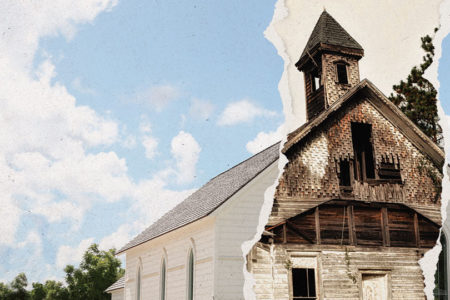
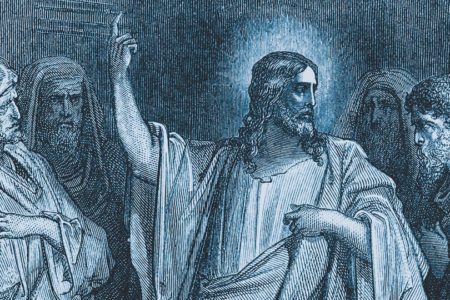
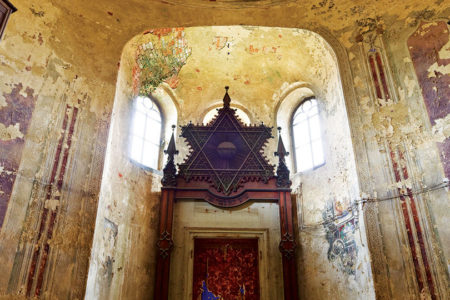
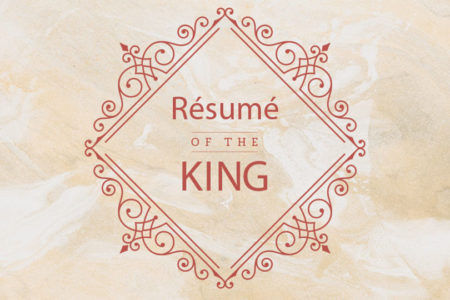
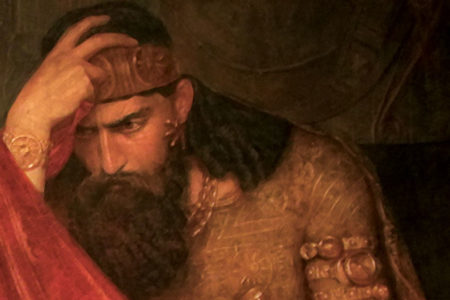

Thanks for the excellent short historical review of how the Priesthood went sour.
When men ignore their responsibility, Hod will remove them from the position of power and hand that responsibility to those He knows will do right by Him.
In the case of the priests, their powe shifted to the One True High Priest whom was ordained from before the beginning of time.